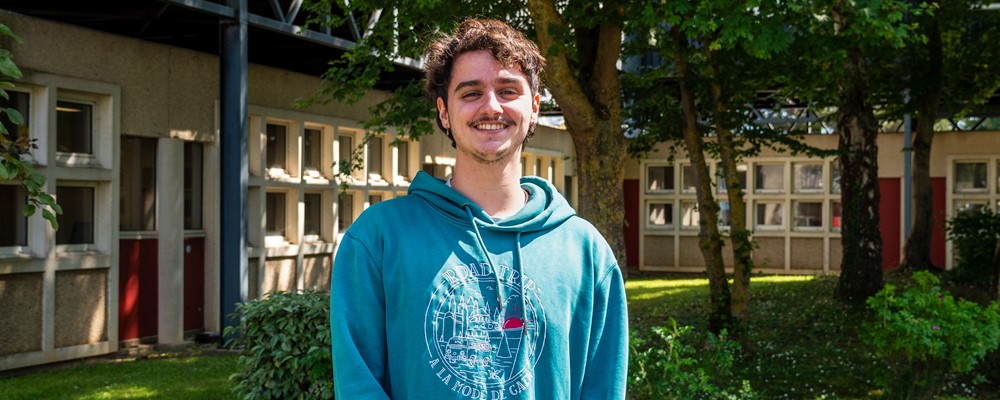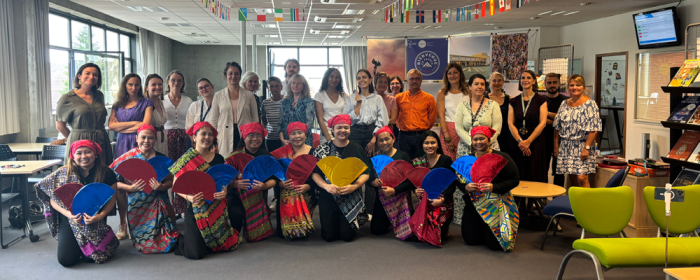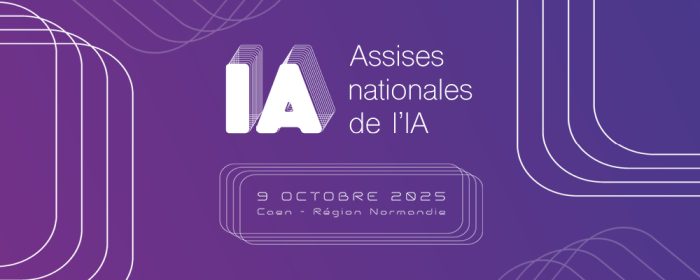Guillermo Ortega is a doctoral student within the LPC, the Corpuscular physics laboratory. As an international researcher, he looks back at his promising academic career, who took him from the university of Valladolid, his Alma mater, to the university of Caen Normandy, through a master’s of excellence: the joint master’s Erasmus Mundus in Nuclear Physics.
Nuclear physics, a vocation
As soon as Guillermo started his physics studies in Spain, he became passionate about atomic physics, then especially on nuclear physics. His passion led him to enter the joint master’s Erasmus mundus in Nuclear Physics. This excellence programme is based on a European network and offers a programme moving on several countries. After a first semester in Spain and a stay in Italy, Guillermo chose to do his second year of master’s in Caen, attracted by the scientific offer of the university in nuclear physics.
The University of Caen Normandy offers various facilities in nuclear physics, including the Corpuscular physics laboratory (LPC) and the Large Heavy Ion National Accelerator (GANIL). These world-renowned structures play a major part in theoretical and applied research. They also contribute to the attractivity of the Normandy region towards international students and researchers. These reasons led Guillermo to do his master’s thesis at the LPC, with a research project directly linked to current challenges in nuclear energy.
At the end of this master’s, Guillermo’s supervisor offered him to pursue with a doctoral contract within the same laboratory. Guillermo’s topic deals with a key issue in nuclear energy: how to manage and reduce radioactive waste. More precisely, Guillermo works on reactors that can burn waste so as to make it non dangerous. Guillermo’s mission is to monitor these reactors by measuring that they are working properly at any moment and that the facilities are safe and secured – an essential issue for energy transition and fight against climate change.
Besides the scientific dimension, Guillermo highlights how motivated he is by his mission: “I actually feel that I am contributing, even if a little bit, to a better and a safer way to produce energy.” He is aware that, although at his level, he is taking part to a worldwide challenge – a great motivation to stay involved in his academic projects.
A project supported by a peak welcome system
In his everyday life as a researcher in Caen, Guillermo benefited from the support of Euraxess, a European initiative which helped him in his administrative procedures. “Euraxess provided me really vital information that helped me a lot through my arrival process. Without their support, I would have had much more trouble with the procedures.” Guillermo adds that this initiative also supports many other students and international researchers, for example in finding an accommodation or helping them settle in Caen. “I met many other researchers, who, like me, benefited from Euraxess as soon as they arrived. The teams are very receptive and easy to reach, which makes all the difference.”
On the personal level, Guillermo enjoys Caen’s human-sized environment, easy to travel on foot or by public transport. Being close to the sea is one more asset that greatly improves the quality of life. The city offers a wide range of cultural and social activities, such as concerts or outings, which make meetings easier, including for international students. “Whether you are an international researcher or a student, I recommend that you engage in social activities offered by the University!” Indeed, several associations organise events and field trips, encouraging meetings and exchanges between people from various backgrounds.
As a conclusion, Guillermo warmly invites all future international researchers and students to come and discover Caen. Here, state-of-the-art research meets friendly welcome and pleasant environment. “And if we ever met around the city, I’d be happy to help you with anything, as will any other of my colleagues!”






